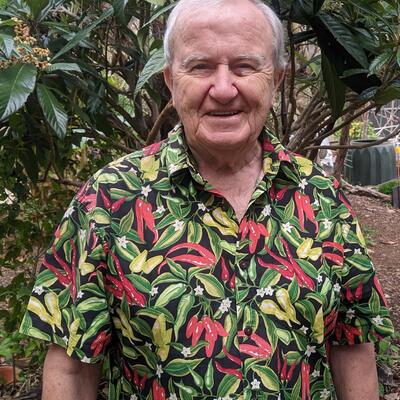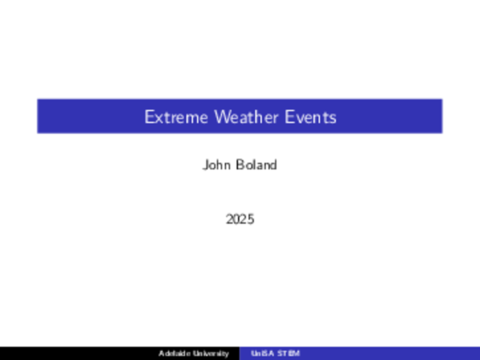PLENARY 2: Extreme Weather Events
In 2025, extreme weather events have included European heatwaves, Pakistan and Queensland floods and South Australian drought. What is important to note is not these incidents per se but that the IPCC’s sixth assessment report states that human-induced greenhouse gas emissions have led to an increased frequency and/or intensity of some weather and climate extremes since pre-industrial time. Australia’s first Climate Risk Assessment was released in September and concluded that the country will experience more extreme climate hazards, even in places normally considered immune to these. This session will use South Australia as a test bed, describing the drought of August 2023 - August 2025, the driest two years recorded, contrasted with the Queensland and New South Wales floods. Aligned with the drought is the increase in the frequency in extreme temperatures, worsening the problems for agriculture. At the same time, a recent winter marine heatwave produced an algal bloom on much of South Australia’s vast coastline, killing a massive number of marine creatures.
Seemingly in contrast, South Australia is the world leader in electricity from variable renewable energy (VRE). It can however suffer from extreme weather events of a different kind, renewable energy droughts, also called Dark Doldrums or Dunkelflaute.
Social and health impacts of extreme weather events and how we can be more resilient to their effects will also be canvassed.
Speakers
John Boland

John Boland is Emeritus Professor of Environmental Mathematics and Deputy Director of the Industrial AI Research Centre at Adelaide University.
Professor Boland has published over 200 academic papers, more than half of which are co-authored by his many PhD students. His globally reaching research covers a wide range of areas from water resource management to renewable energy utilisation to energy efficient house design and environmental accounting. Stochastic modelling of climate variables is his forte. He is a Fellow of the Modelling and Simulation Society of Australia and New Zealand, and of the Australian Institute of Energy, as well as an Australian expert member of Task 16 of the International Energy Agency on Solar resource for high penetration and large scale applications.
